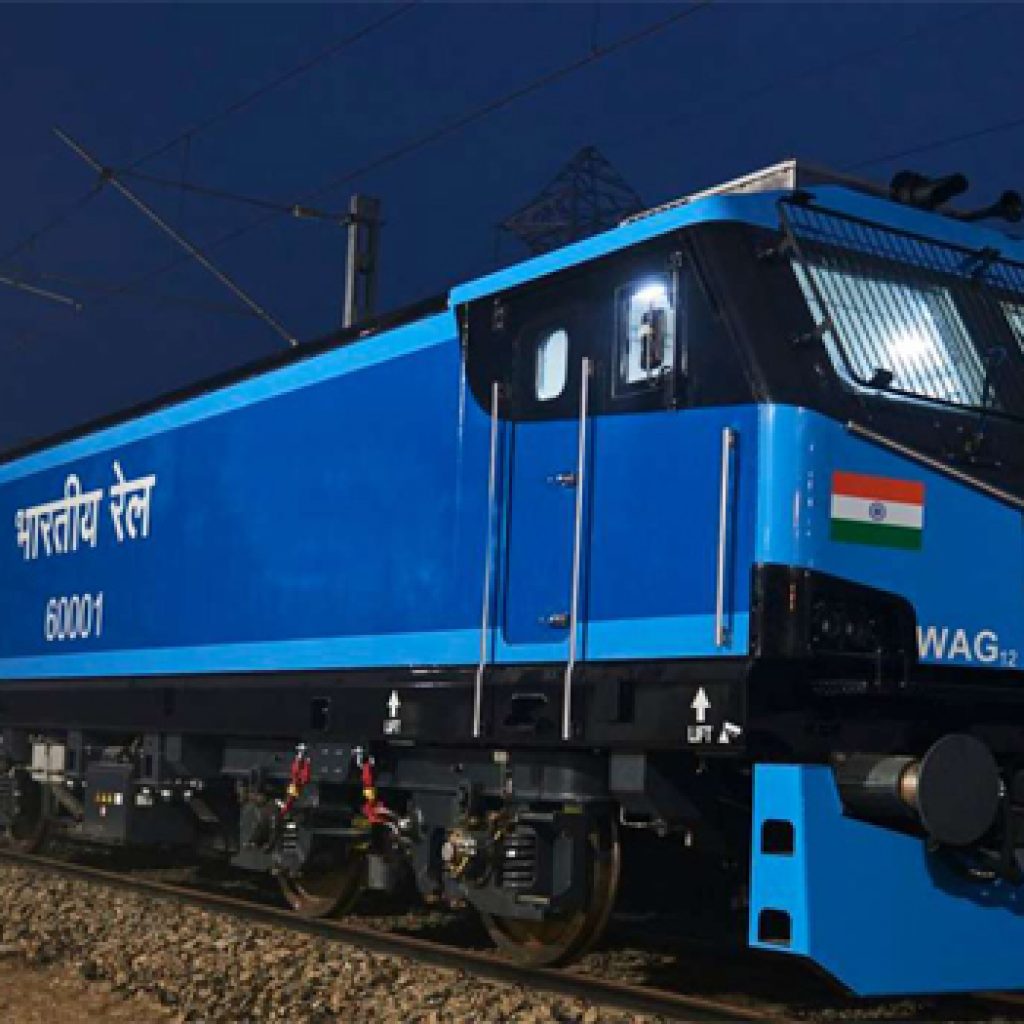
The first all-electric train was completed by Alstom on time from its high-tech locomotive facility at Madhepura in Bihar. The train is the first of many more to come after the Government and the Indian Railways set up the target of achieving a 100% electrification of the railways in India and therefore step closer to sustainable mobility. Additionally, the new electric trains will cut down operating costs of the Railways by a huge margin and a huge volume of greenhouse gas emissions.
This first all-electric train will lead the way in the €3.5 billion order for a fleet of 800 electric double-section locomotives signed in 2015. This initiative comes under the Ministry of Railway’s public-private partnership programme as they want to modernize the overall Indian railway infrastructure. This contract marked significant milestones for every parties involved in the project. It is the largest Foreign Direct Investment in the railways sector while also being the biggest contract of Alstom’s history.
Our operations in India are paramount to our business globally and we continue to stay committed to developing India’s infrastructure needs, improving the quality of services to citizens and investing in the nation’s economy,
said Henri-Poupart Lafarge, Chairman and CEO, Alstom.
The Alstom’s Prima locomotives are quality vehicles boasting 12,000 horsepower that allows a hauling capacity of 6,000 tonnes and reaching speeds of 120km/hr, which is faster and safer than the trains presently available in the country. Therefore, another advantage of these locomotives would be faster train journeys and reduced congestion for passenger train services. The locomotives also meet the Indian Regulations of freight transport for they are equipped with IGBT propulsion technology which will enable the train to withstand the harsh Indian climate and conditions. The locomotives were developed with the backing of 6 Alstom sites in France, notably Belfort for the 6 first car bodyshells, Ornans for the motors, Tarbes for the traction, Le Creusot for bogies, Villeurbanne for the train control monitoring systems and Saint-Ouen is credited for the design.
This project stands as a shining example of Alstom’s commitment to ‘Make in India’. Apart from creating thousands of jobs directly and indirectly, we have created a strong localised supply chain for this project, with 90% of the components sourced locally,
Mr Lafarge added.
Alstom’s work delivery is so satisfactory – they are meeting the contractual timelines – that the government distributed three additional contracts worth a total of €75 million to supply power to the Mumbai Metro, to provide new train set to the Chennai Metro and to supply power to the Jaipur Metro. Finally, Alstom is also working alongside local NGOs in an attempt to provide better health care, education and proper livelihood in the locality they have set up basement.
